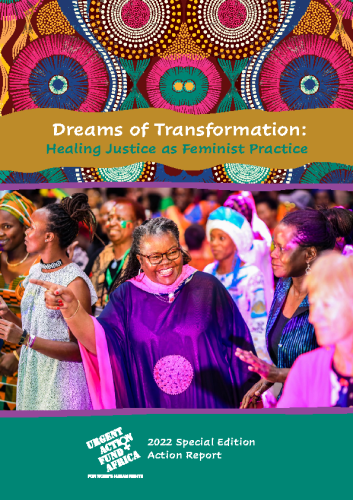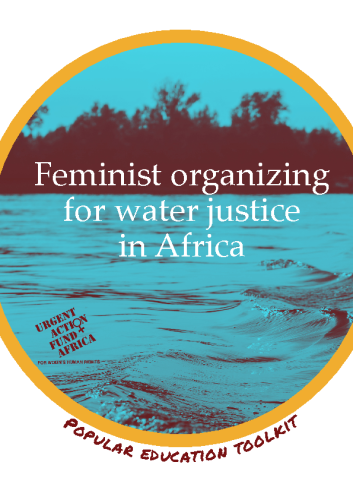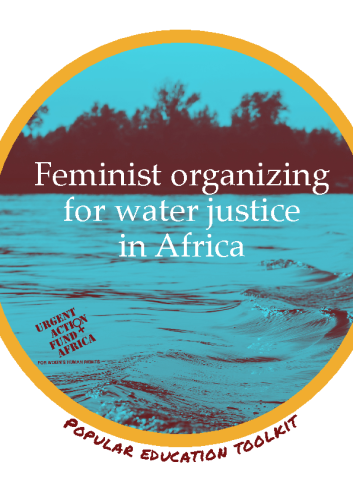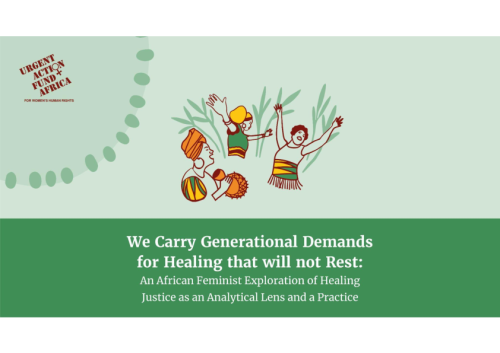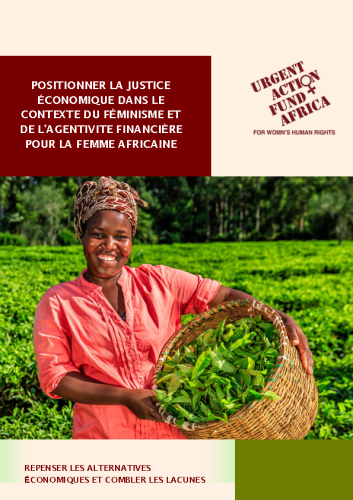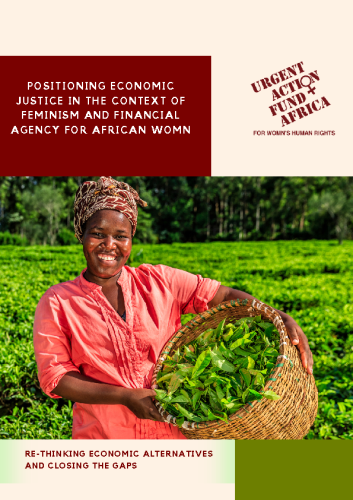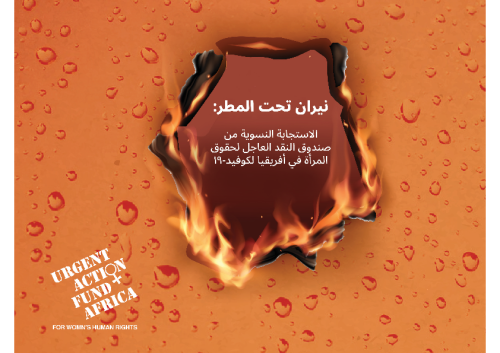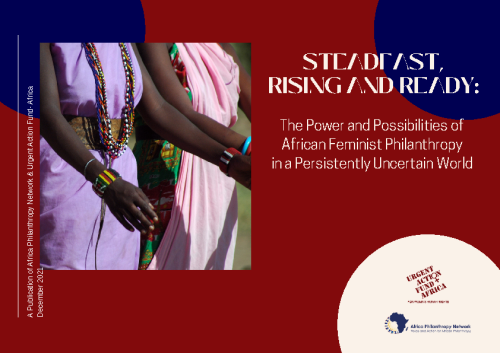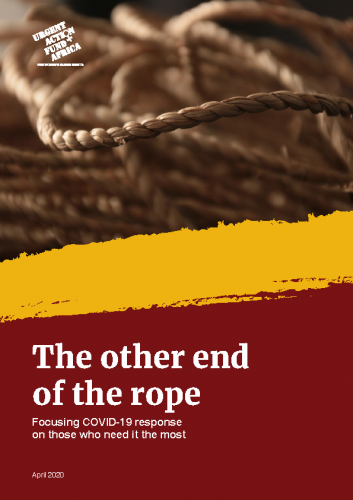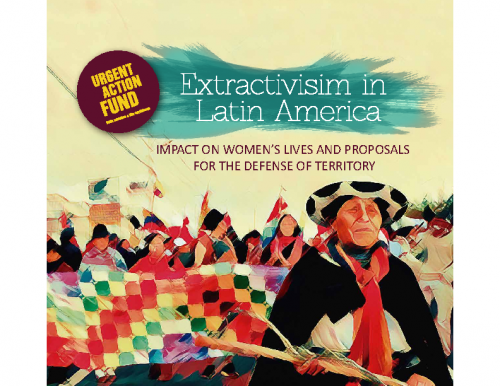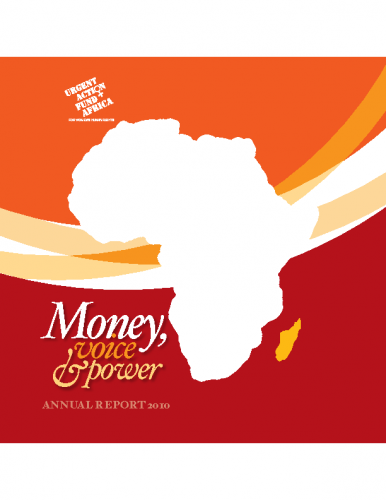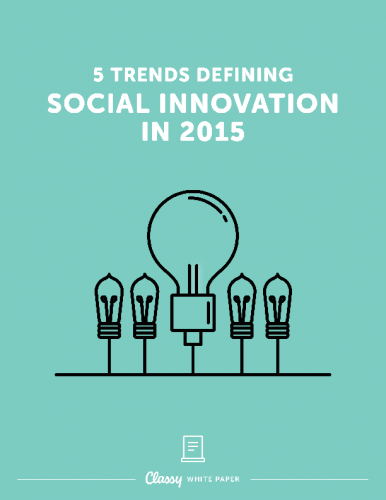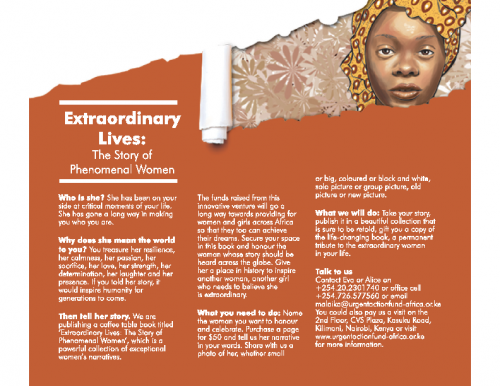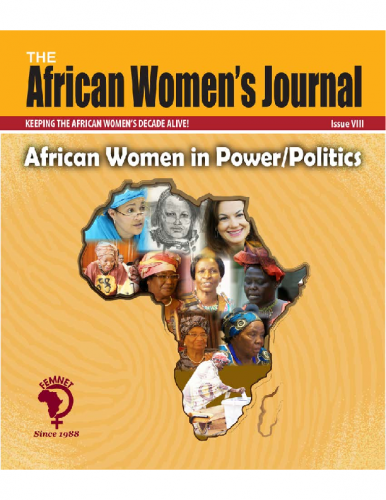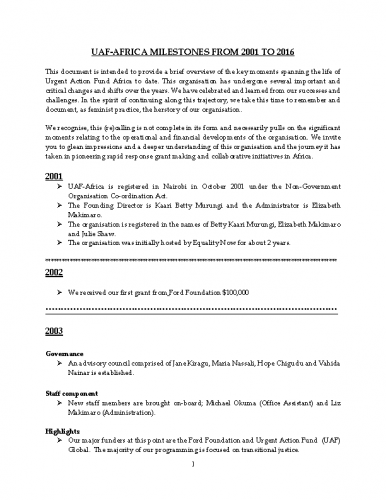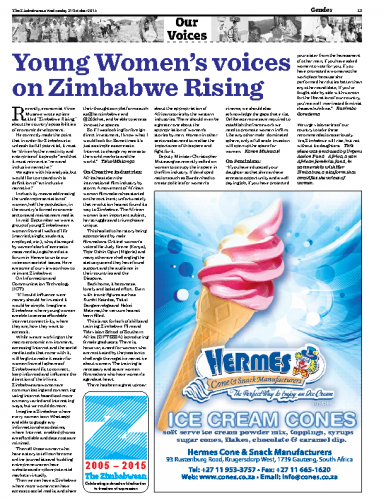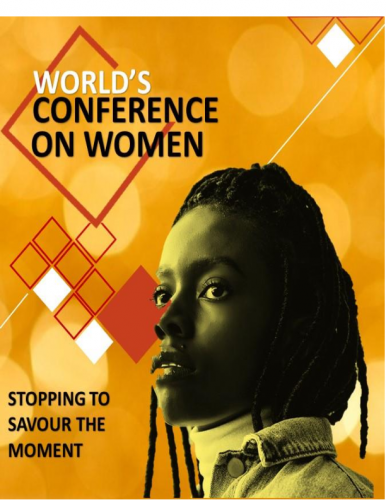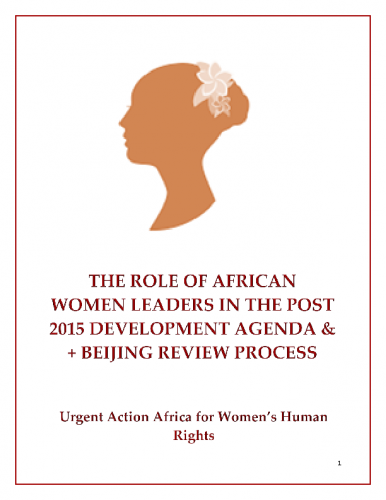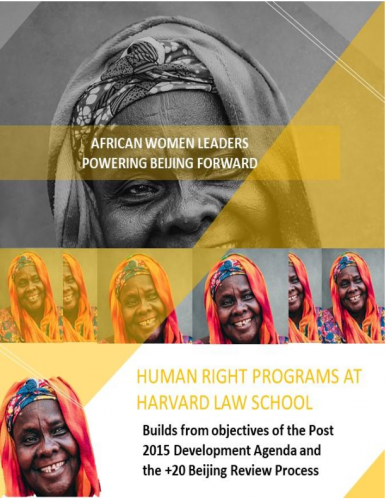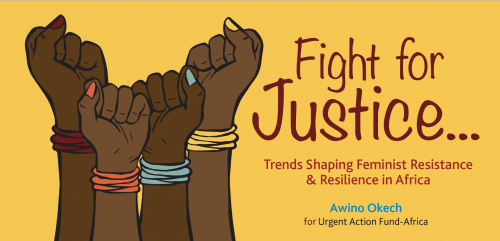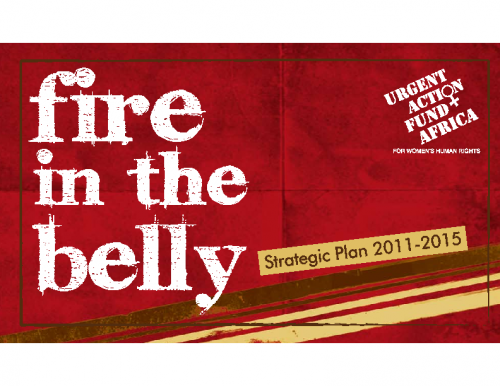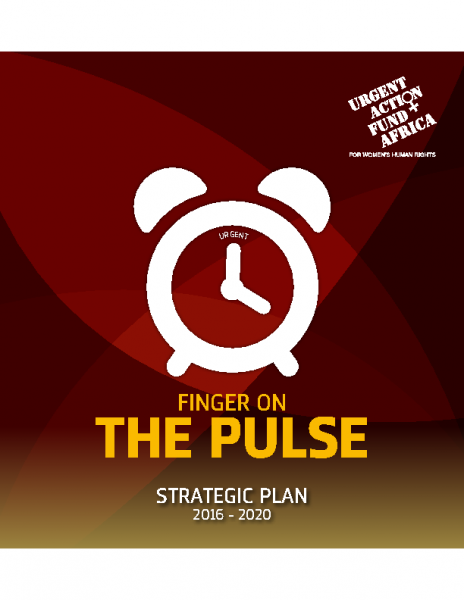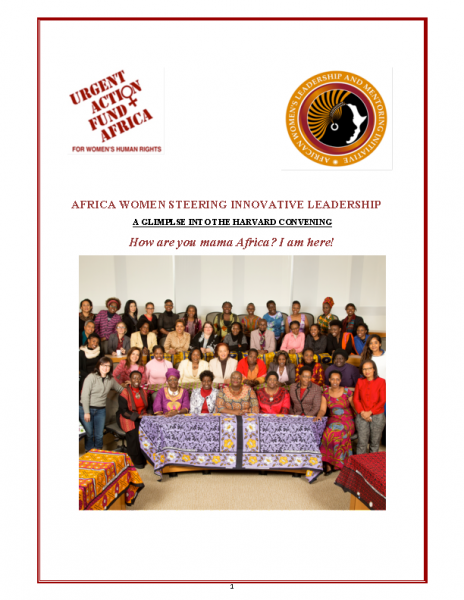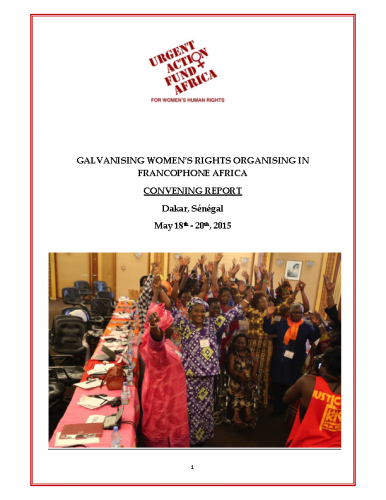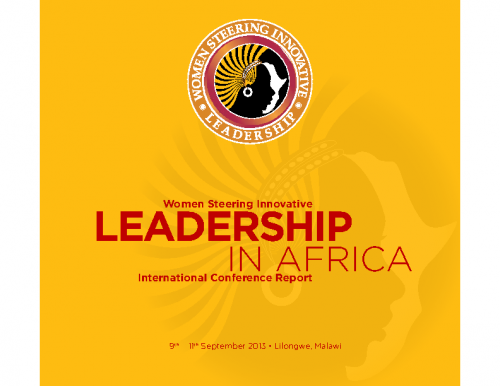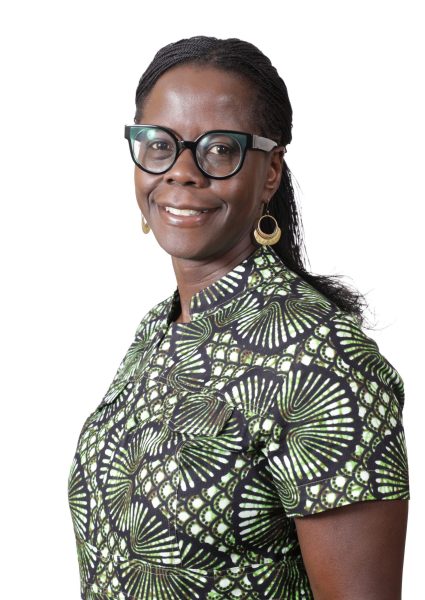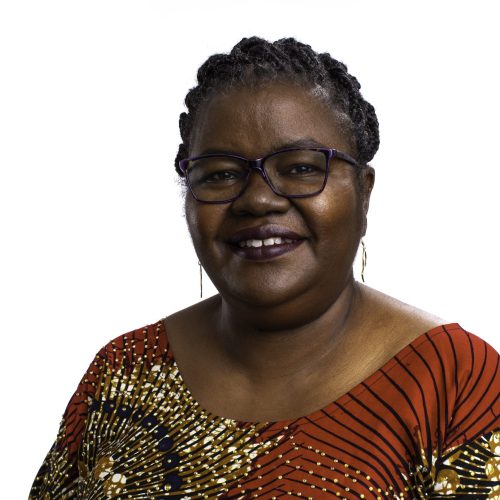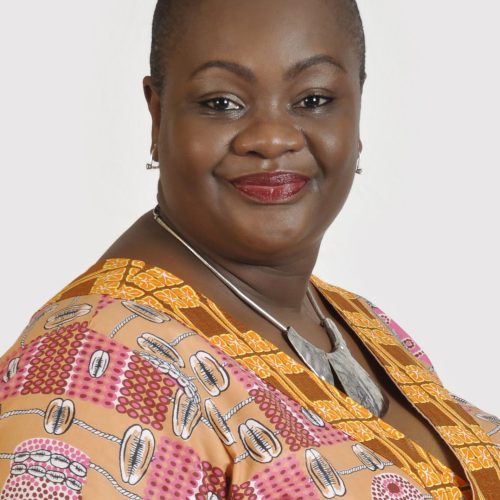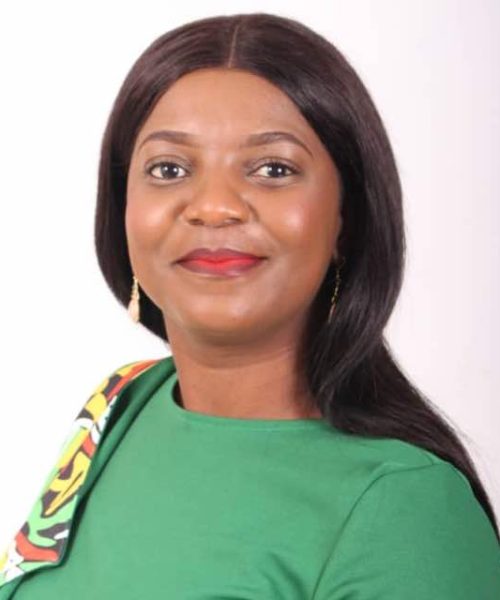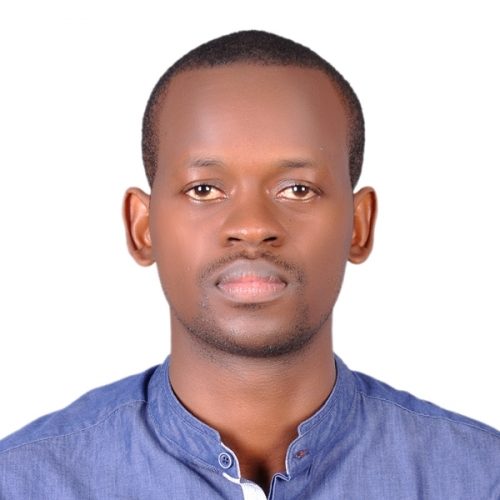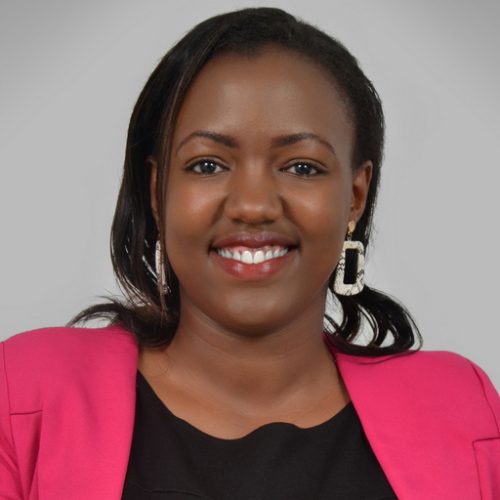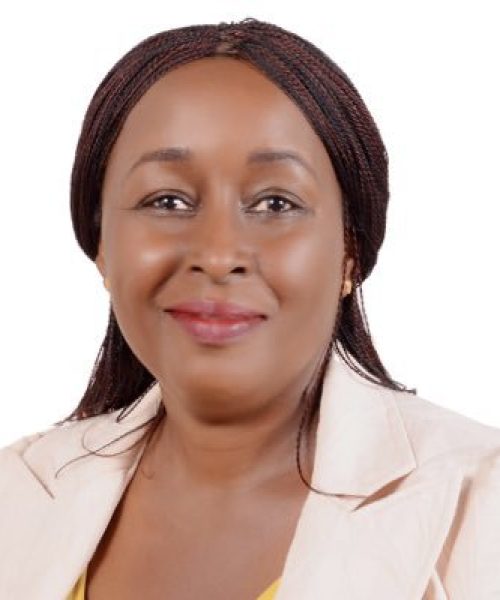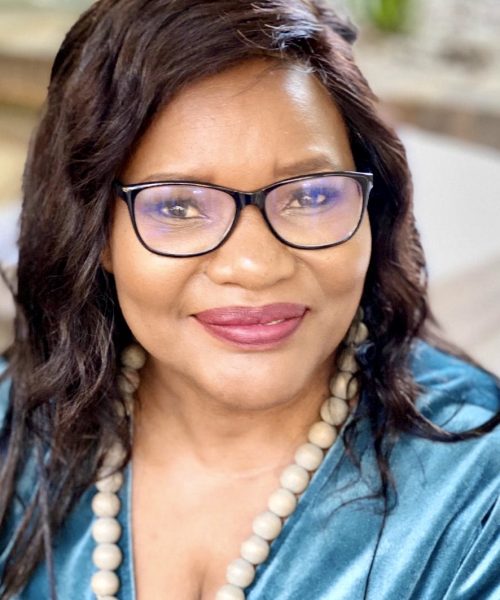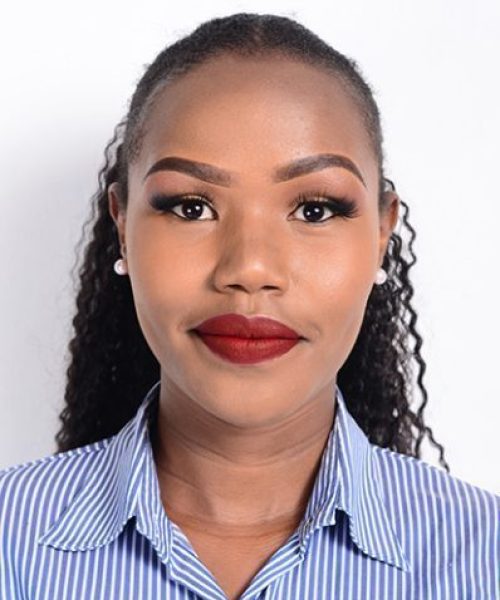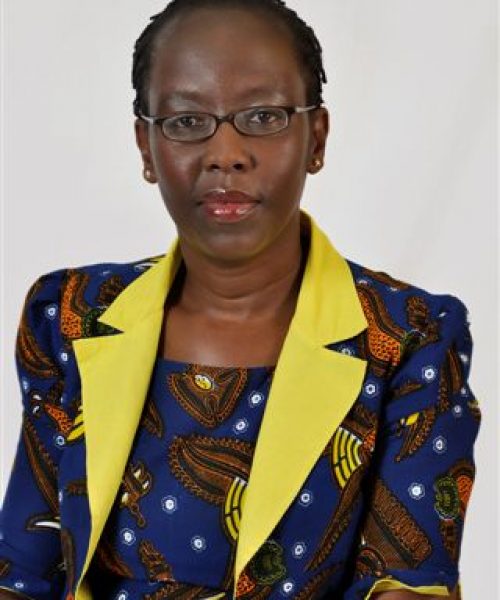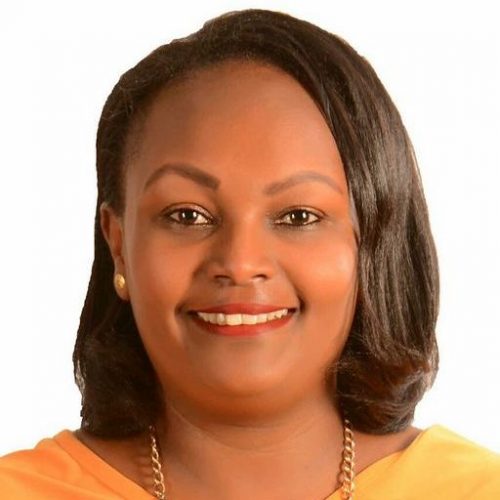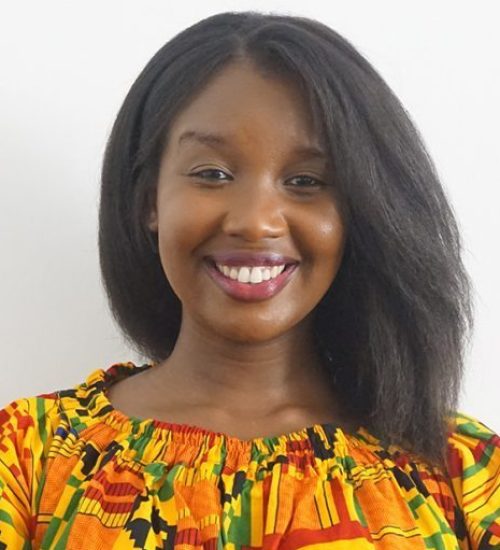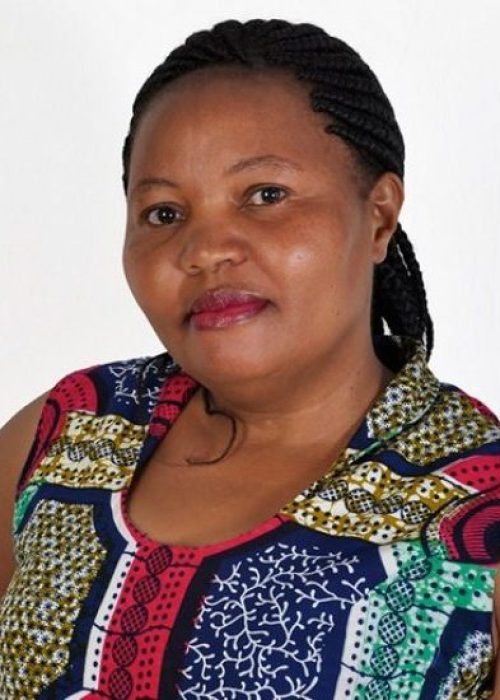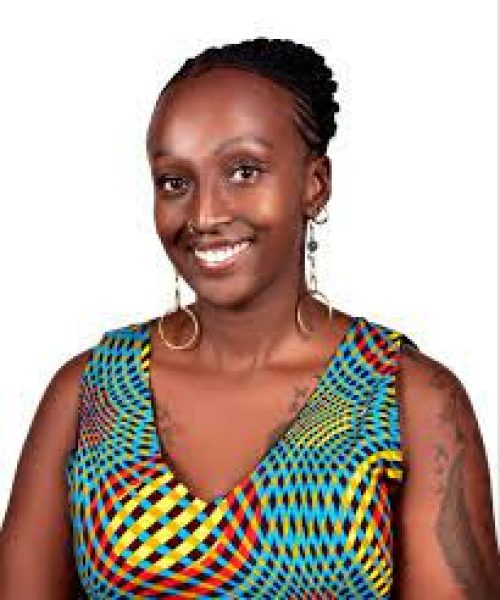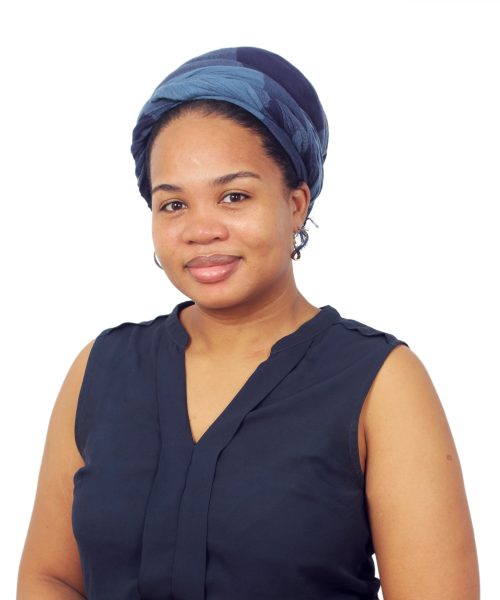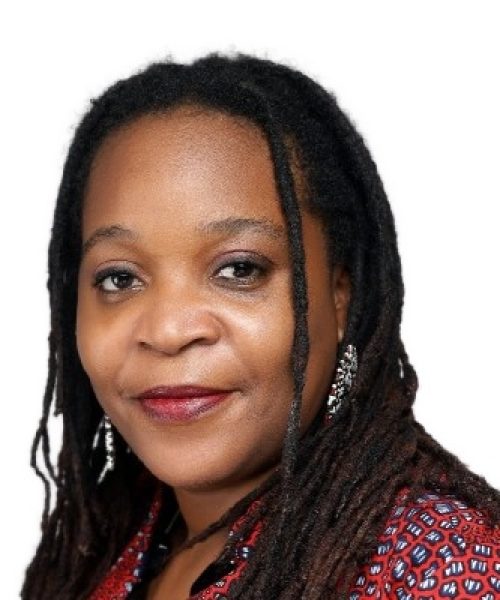PUBLICATIONS
Healing from a feminist perspective entails challenging what we know about the prominent approaches (mainstream) to care and wellness that focus on isolating our physical, mental and emotional health from our contexts. This report refers to centering healing in the Festival space. In addition to centering healing offerings physically in the Festival space and in the agenda, we also mean that we are centering ourselves in a politicized understanding of healing explained above. We were inspired by the directive to “center ourselves” which is often heard in different spiritual traditions, which largely refers to connecting with our spirit, being aware and present, encouraging us to reset after losing our balance due to the chaos of daily existence.
The 2nd Feminist Republik Festival presented a special moment in our lives. It had been almost three years since we were able to gather face-to-face due to the global COVID-19 pandemic. It had undoubtedly been a challenging, strange and reflective time for us all. At the Fund, the pandemic placed an added urgency on issues we had always grappled with, namely the multiple roots of distress, fatigue and burnout that womn’s1 human rights defenders (WHRDs) experience. COVID-19 presented a ‘golden opportunity’ for states to criminalise the activism of WHRDs and clamp down on civic spaces. Womn’s rights organisations grappled with rapid decisions to shift organisational budgets, respond to new community needs, and quickly make organisational shifts to virtual work arrangements (shifts that typically take organisations years to get accustomed to). Activists and defenders responded to unparalleled care needs, from caring for family members afflicted with COVID-19 while transforming into teachers as children shifted to online schooling, all while trying to function with minimal childcare support.
Le deuxième Festival de la Républik féministe a été un moment particulier dans nos vies. Cela faisait presque trois ans que nous n’avions pas pu nous rencontrer physiquement en raison de la pandémie mondiale de COVID-19. Cela a sans aucun doute été une période difficile, singulière et propice à la réflexion pour nous toutes. Pour le Fonds, la pandémie a ajouté une urgence supplémentaire aux problèmes auxquels nous sommes toujours confrontées, à savoir les multiples causes de détresse, de fatigue et d’épuisement que connaissent les défenseures des droits des femmes1 (DDF). La COVID-19 a donné aux États «l’opportunité rêvée» de criminaliser l’activisme des défenseures des droits des femmes et de restreindre les espaces civiques. Les organisations de défense des droits des femmes ont été confrontées à des décisions rapides de réorientation des budgets organisationnels, de réponse aux nouveaux besoins des communautés et de transition rapide vers des méthodes de travail virtuelles (transition à laquelle les organisations mettent généralement des années à s’habituer). Les activistes et les défenseures ont répondu à besoin de soins de compassion sans précédent, qu’il s’agisse de s’occuper de membres de la famille atteints de COVID-19 ou de se transformer en enseignantes lorsque les enfants sont passés à la scolarisation en ligne, tout en essayant de s’occuper d’eux avec une assistance minimale.
This is a toolkit with activities designed to facilitate a popular education process for and with activists who are fighting for water justice in Africa. With popular education we mean a process whereby people who experience oppression come together, are enabled to express their views, and collectively work out a way to solve their problems. Some activities include aspects of political education to foster a critical analysis of processes of neoliberalism and privatization. Overall, the toolkit aims to assist users’ in understanding the causes of injustices and generating possible alternatives and solutions.
Le deuxième Festival de la Républik féministe a été un moment particulier dans nos vies. Cela faisait presque trois ans que nous n’avions pas pu nous rencontrer physiquement en raison de la pandémie mondiale de COVID-19. Cela a sans aucun doute été une période difficile, singulière et propice à la réflexion pour nous toutes. Pour le Fonds, la pandémie a ajouté une urgence supplémentaire aux problèmes auxquels nous sommes toujours confrontées, à savoir les multiples causes de détresse, de fatigue et d’épuisement que connaissent les défenseures des droits des femmes1 (DDH). La COVID-19 a donné aux États «l’opportunité rêvée» de criminaliser l’activisme des défenseures des droits des femmes et de restreindre les espaces civiques. Les organisations de défense des droits des femmes ont été confrontées à des décisions rapides de réorientation des budgets organisationnels, de réponse aux nouveaux besoins des communautés et de transition rapide vers des méthodes de travail virtuelles (transition à laquelle les organisations mettent généralement des années à s’habituer). Les activistes et les défenseures ont répondu à des besoins de compassion sans précédent, qu’il s’agisse de s’occuper de membres de la famille atteints de COVID-19 ou de se transformer en enseignantes lorsque les enfants sont passés à la scolarisation en ligne, tout en essayant de s’occuper d’eux avec une assistance minimale.
This research report explores the healing justice framework from African, feminist, activist perspectives. It traces Urgent Action Fund-Africa’s journey to healing justice. The framework shows the evolution of feminists toward healing, health and wellness. It reflects the analysis that lies at the heart of feminist theorizing: What is fundamentally wrong with the ways in which our realities have been structured to exclude us? How do these realities and the traumas they generate affect our wellness and the heaviness we carry to our organizing spaces? (To access a visualization of the healing justice framework please follow this link- https://www.uaf-africa.org/wp-content/uploads/2023/06/Healing-Justice-Framework_Visualization..pdf )
Ce rapport de recherche étudie le cadre de la justice réparatrice des points de vue africain, féministe et militant. Il retrace le parcours de l’organisation Urgent Action Fund-Africa en direction de la justice réparatrice. Le cadre indique l’évolution des féministes vers le chemin de la guérison, la santé et le bien-être. Il reflète l’analyse qui se trouve au coeur des théories féministes : Qu’y a-t-il de fondamentalement mauvais dans la structure de nos réalités puisque nous en sommes exclues ? Dans quelle mesure ces réalités, et les traumatismes engendrés, affectent-elles notre bien-être au point de nous ronger jusque dans nos espaces organisationnels?
To advance a different philanthropic ecosystem, the Reimagining pan-African and Feminist Philanthropies initiative has taken a step beyond the ‘power of networks’ approach to building and strengthening networks by engaging in deeply substantive and collaborative work. It interrogates how top-down institutionalised ways of giving limit the power to decide on the most needed changes – both in society and within the philanthropic ecosystem. The logic of effective philanthropy derives not only from the ethics of virtue and duty but also from sustained inequalities of income and wealth. The elite funder model of philanthropy gives funding control to high-net-worth individuals and foundations without being mindful of the constituencies being served.
La justice économique repose sur la conviction selon laquelle la répartition équitable des ressources et la prospérité partagée sont en fin de compte un avantage pour la société.
Economic Justice is the belief that equitable distribution of resources and shared prosperity are ultimately a benefit to society. As part of a broader movement and network of feminists and womn’s organisations, UAF-Africa has been doing work in this area – amongst others – for more than a decade. Years of work has allowed us to gain understanding regarding the effectiveness of grant making and the political, historical and economic contexts where grantees and potential grantees are situated. (To access a visualization of the healing justice framework please follow this link.
يركز هذا التقرير على التنظيم النسوي الذي قامت به المدافعا*ت عن حقوق النسا*ء، ومنظمات حقوق النسا*ء الأفريقية والحركات النسوية في السنوات الحرجة للموجة الأولى والثانية والثالثة من كوفيد-١٩ في أفريقيا. يقوم هذا التقرير بتسليط الضوء، أيضا، على التأمل الداخلي الذي يحدث داخل صندوق النقد العاجل لحقوق المرأة في أفريقيا بناء على تجارب المدافعا*ت بخصوص العناصر الحاسمة لدعم الحركات النسوية الأفريقية – الحياة الكريمة والقوة التي تعزز العدالة الاقتصادية للنسا*ء؛ والعلاقات والقوة التي تغرس الشفاء والتجديد داخل التنظيم؛ والموارد والقوة التي تؤثر في الحصول على أموال أفضل وأكثر للمدافعا*ت عن حقوق النسا*ء في أفريقيا؛
Le Présent rapport, « Un feu sous la pluie », cartographie les initiatives d’organisation des mouvements des femmes et des mouvements féministe Africains soutenus par UAF-Africa en 2020 et 2021 au moment où le coronavirus se propageait dans le monde, devenant rapidement une pandémie, et impactant par la suite les vies des Africains en trois vagues d’infections dont le nombre de cas et de décès augmentaient rapidement. Le rapport s’articule comme suit L’action du Fonds tout au long de la pandémie.
This report, “Fire in the rain, UAF-Africa’s feminist response to COVID-19”, centers the organizing led by AWHRDs, African womn’s rights organizations and feminist movements in the critical years of the first, second and third wave of COVID-19 across Africa. In the report are highlights of UAF-Africa’s internal reflections based on defenders’ experiences on critical elements to sustaining African feminist movements – the good life and power fostering economic justice for womn; relationships and power infusing healing and regeneration in organizing; resources and power influencing better and more money for AWHRDs; love and power centering love and care as a political project crucial for fuelling passion and all positive expressions of power.
L’action d’UAF-Afrique est alignée sur les approches féministes et alternatives du contrôle et de la gestion de l’eau, qui sont axées sur les besoins des personnes les plus marginalisées dans la société – les femmes africaines issues des communautés pauvres – et qui sont au coeur de cette recherche. Le présent rapport souligne l’urgence du combat des femmes pour l’eau et met en exergue l’intersectionalité de la problématique de l’eau qui touche à la production alimentaire, à la santé, au logement, à l’assainissement et au changement climatique. Il met en lumière l’importance du renforcement des mouvements sociaux et de la convergence des luttes aux niveaux local, régional et international. Certains des aspects clés de cela sont entre autres l’éducation politique féministe au niveau local, les réunions stratégiques pour renforcer la solidarité, influencer et construire de puissants contre-récits à travers une campagne continentale pour la justice de l’eau.
The work of UAF-Africa is aligned with feminist and alternative approaches to water control and management, which focus on the needs of the most marginalised in society – African womn from poor communities – and this is at the heart of this research. This report emphasises the urgency of womn’s struggle for water and highlights how water is an intersectional issue that cuts across food production, health, housing, sanitation and climate change. The report puts a spotlight on the importance of strengthening social movements and connecting struggles at local, regional and international levels. Some of the key aspects of this include feminist political education at grassroots level, strategic convenings to enhance solidarity, influencing and building powerful counter-narratives through a continental water justice campaign.
Steadfast, Ready and Rising is the outcome of a process of listening to learn from a selection of Feminist and Women’s Funds, organisations and individual activists that have contributed to fuelling and supporting feminist organising from the local to national to regional levels across the African continent in the midst of the pandemic. The ideas, stories and analysis shared with us have been mapped, further analysed and packaged as a celebration and recognition of the powerful and often invisiblised work and activism of these individuals and groups.
Feminists in Africa continue to build and evolve our movements in our quest for the world we want. We are imagining possibilities for our movements and for feminist organising. This, in the midst of a new crisis —the novel COVID-19 health crisis, an extension and deepening of the endemic economic, social and political crises of our time.
Les féministes africaines continuent de construire et de développer nos mouvements dans notre quête du monde que nous voulons. Nous imaginons des possibilités pour nos mouvements et pour les organisations féministes. Et ce, au milieu d’une nouvelle crise — la nouvelle crise sanitaire de Covid-19, une prolongation et une exacerbation des crises économiques, sociales et politiques endémiques de notre temps.
People living at the margins of society, falling within the low-income bracket, lacking social safety nets of public health, maternity and childcare services are the ones who are negatively impacted by COVID-19 the most. Using a feminist lens, UAF-Africa focused her grant making efforts on these groups. This bulletin highlights how we shifted the focus of our grant making processes to support these group of people to deal with the impact of COVID-19.
In December 2012, Urgent Action Fund-Africa (UAF-Africa) took the bold decision of transitioning into a “virtual organisation” (VO). This decision was in many ways radical and intuitive. Almost eight years later, we find that the concept is still both fascinating and intriguing for many of the different actors we interact with. This document shares what that experience looks like.
UAF-Africa implemented a 2-year project through which she worked with Women Human Rights Defenders (WHRDs) from Tunisia and Egypt, to explore their experiences with online activism. Research was conducted through which 15 WHRDs were interviewed to explore their experiences of violence online.
Over the past year, the Urgent Action Sister Funds have collectively turned an intersectional feminist lens to the tidal wave of new restrictions on and existential challenges to civil society and human rights activism, colloquially known as the “shrinking civic space.” Looking with this lens we see the gendered impacts the “shrinking space” trends have had. And, we see the sheer ingenuity and fierce resilience that feminist activists have shown under great duress.
With the objective of strengthening women’s struggles, in 2014 we produced International Standards for Women’s Rights as Related to the Environment and Territory, and Women, Territory, and the Environment- State of the Art in Latin America. Based on our commitment to collective knowledge creation, in 2016, we published the book Women Defending Territory. Participatory Experiences in Latin America, the goal being to bring to light women’s participation in processes of prior consultation
A rapid response grant maker such as UAF-Africa has a unique advantage of providing financial and knowledge resources to women’s and women-led NGOs in the fastest time possible. There is that strategic moment that women human rights activists must seize expeditiously to respond to a Hope has a conversation with Jessica about her experience as UAF-Africa’s Executive Director, (March 2009 – February 2011)JessiCA nkuuHeHope CHigudu16
2015 will be an unprecedented year for social innovation. This optimal environment has been enabled by a number of trends and technologies that have increased available capital, participation, intelligence and creativity in the design of social solutions. Based on our research and observations, and combined with the feedback of the 2014 Leadership Council members and Classy Awards Nominees,
The world has changed in important ways for women’s rights and gender equality since the Fourth World Conference for Women in Beijing in 1995, an epic event that produced a globally-agreed ‘roadmap’ to gender equality and that remains a reference point for governments and for women’s movements alike until today. Changes have been uneven at best, mirroring the complex path that social transformation requires and the call to action for a more holistic approach.
The funds raised from this innovative venture will go a long way towards providing for women and girls across Africa so that they too can achieve their dreams. Secure your space in this book and honour the woman whose story should be heard across the globe. Give her a place in history to inspire another woman,another girl who needs to believe she is extraordinary
In this issue of the African Women’s Journal, dubbed African Women in Power/Politics, we seek to explore both the individual and collec-tive experiences of past, aspiring or current women in power/politics. The articles speak to some of the persistent and structural as well as emerging obstacles and challenges women face as they wrestle with power, privi-lege and politics. Authors also present alternative strategies for ensuring visionary, transformative leadership. We stop and take stock and give room for personal journeys and reflections.
We are proud to present a brief overview of the key moments spanning the life of Urgent Action Fund-Africa to date. We have undergone several important and critical changes and shifts over the years. We have celebrated and learned from our successes and challenges. In the spirit of continuing along this trajectory, we take this time to remember and document, as feminist practice, the herstory of our organisation.
Africa has taken the international film industry by storm. A movement of African women filmmakers has started on the continent; unfortunately that revolution has not found its way to Zimbabwe. The African woman is an important subject, her struggles and triumphs are unique. This has led to her story being appropriated by male filmmakers. Critical women’s voices like Judy Keene (Kenya),
This programme is charged with reaching African women and providing them with the information and knowledge they require to access our grants as well as other related resources, both in Africa and overseas. This is achieved through use of a multiplicity of platforms and channels, from social media to physical meetings and convenings. Through this programme UAF-Africa has been represented not only on social media site
On a day to day basis, in public or private spaces, we are impacted by the Beijing Platform for Action, a road map to equality.We, at UrgentAction Fund-‐‑Africa (UAF-‐‑Africa), connect with the Beijing World conference in a special way because we were conceived as a result of some of the discussions that took place at the NGO Forum held in Huairou, north of Beijing and attended by 40,000.
The convening will prioritise and attempt a methodology that gets participants out of the most-travelled ways of thinking, to stimulate women leaders to be more curious and explicit about experiencing their leadership differently-we all know that reproducing the same old strategies will not likely transform society. The convening participants will be encouraged to embody new ways of being, seeing,thinking and acting in order to plant and ultimately harvest transformational change in their spheres of influence and countries.
The event, organized by Urgent Action Fund–Africa (UAF-‐‑Africa), in close collaboration with The Human Rights Program at Harvard Law School and Ford Foundation, marked the much-‐‑anticipated progress that builds from the objectives of the Post 2015 Development Agenda and the +20 Beijing Review Process.Building on the two frameworks that shaped and instructed the thinking and actions on women’s leadership, the convening affirmed and reclaimed gender equality as a powerful requisite towards sustainable development.
This report offers an analysis of the key dynamics social movements are grappling with across Africa. It poses questions about what is happening in Africa and how human rights defenders (HRDs), and gender non-conforming people, are responding to, influenced and impacted by this environment.
STRATEGIC PLANS
Women and girls are Africa’s untapped potential. The issues, factors and actors that inhibit their freedom to thrive are numerous, complex and constantly evolving. Yet, women are not passive; they have resisted oppression, spoken out for the silenced, marched for change and advocated liberty, justice, dignity and rights against forces that are resistant to a shift in the present inequitable power structures; a shift in the status quo.
In the last four years, UAF-Africa has sharpened her grant-making mechanisms. We were the first and only grant-maker to review and disburse a grant within two hours. Days into the Tunisian revolution, before the dust had even settled, the Fund decided to conduct an outreach mission to the country. We wanted to express solidarity with and gain understanding of the women behind the revolution and ensure that their voices were not lost in the
CONVENING REPORTS
With the knowledge,activism, experience and intellectual capacity of those in the room,Harvard became a vessel for collective and individual reflection, harnessing energies,contestation, theorising, pausing for celebration and coming together to collate African women’s narratives. It was also a platform for bringing the United Nations Conference on Women held in Beijing in 1995,its Platform for Action (BPFA) and the 2015 Development Agenda into the room .
The convening brought together thirty three women’s rights and feminist leaders from elevenFrench-speaking African countries to connect and support women’s organisationsfrom Francophone West and Central Africa. As countries in Francophone Africa emerge from conflicts, negotiate for peace and security, as well as transitioning to vibrant democracies, emerging women leaders must be an integral part of the establishment of the structures, systems, legislations and policies that will lead to open, tolerant and inclusive societies
The tweet-a-thon provided a space to invigorate discussions that are happening at global, national and local levels, exploring issues and experiences affecting African women across various contexts. The discussions explored events and phenomena that are shaping discourse; the way we think, the way we act and the way we perceive the future with regards women’s human rights
The Women Steering Innovative Leadership in Africa International Conference was held from the 9th to the 11th of September 2013 at the scenic Bingu International Conference Centre, Lilongwe, Malawi. The landmark leadership conference whose tagline was “Powering the African Dream”, was intended to contribute towards the identification and development of visionary, feminist, transformative and gender sensitive women leaders who are able to engage comfortably in and influence issues of national, regional and international nature.
Shifting the Power through local Philanthropy is a report of a strategic meeting held two months after Zimbabwe entered into a new political dispensation in February 2018, Urgent Action Fund Africa (UAF-Africa) in Collaboration with Global Fund for Community Foundation (GFCF) wanted to create an opportunity to bolster and embolden the work of the women’s rights movement at a momentous time when multiple opportunities present themselves in the country’s political and economic environment.


